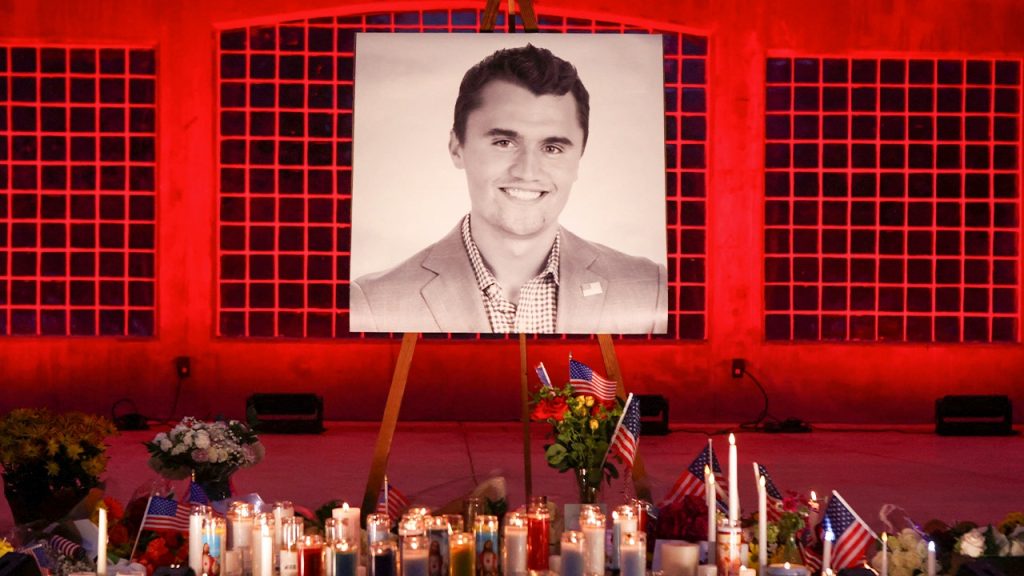Charlie Kirk’s Legacy of Gratitude and Faith Lives On
As the nation approaches Thanksgiving, the enduring message of gratitude championed by Charlie Kirk continues to resonate nearly three months after his assassination. In his final Thanksgiving statement in 2024, just weeks after the presidential election, Kirk emphasized the profound importance of thankfulness in American life. JP De Gance, president of Communio, reflects that Kirk’s message echoes Thanksgiving traditions from throughout American history: “I think Charlie’s message repeats those messages of Thanksgivings long ago when we were at different times, we’ve had setbacks as a country, we have had sufferings as a country, we had losses as a country and the message of Thanksgiving is that in all things we can be grateful.” This perspective reminds us that even in our darkest moments as individuals and as a nation, we can still find reasons to express gratitude and look to a higher power for strength.
Kirk deeply cherished Thanksgiving, describing it as a “uniquely American tradition” that transcends religious differences and unites people in appreciation. “I think it speaks very well to our nation that there is a day when we stop and say thank you,” Kirk said in 2024, articulating his belief that “the ungrateful make the world worse” while “the grateful make the world better.” His message went beyond superficial thankfulness, connecting gratitude directly to faith: “Gratitude is the fruit that makes everything else taste sweet. But then you must be thankful to whom? To the Almighty God.” De Gance elaborates on this spiritual dimension, explaining that humility enables Christians to recognize the divine source of life’s blessings. While Thanksgiving occurs annually as a national observance, De Gance suggests that gratitude should be “part of the daily Christian walk,” integrated into our everyday perspective rather than confined to a single celebration.
In our increasingly digital world, Kirk’s final Thanksgiving message included a timely plea for Americans to disconnect from technology during the holiday and prioritize face-to-face interaction with family members. This sentiment resonates strongly with De Gance, who emphasizes the importance of stepping back from the constant digital noise that pervades modern life. “There’s so much noise from our technology and from the world around us, and I think it’s a great reminder, a great message and exhortation to disconnect from the devices and take a step back from the daily noise,” he explains. This technological pause creates space for genuine connection and reflection, allowing us to experience Thanksgiving’s true purpose rather than being distracted by screens and notifications.
Beyond personal and family connections, Kirk’s legacy inspires a broader vision of community during the holiday season. De Gance, aligned with Communio’s mission, encourages Americans to extend their Thanksgiving tables to those who might otherwise spend the holiday alone. “It can give us a chance and an opportunity to invite others into our homes to invite them in, to experience that gratitude,” he suggests, highlighting the “epidemic of loneliness that is ravaging our country.” This perspective transforms Thanksgiving from a merely private family gathering into an opportunity for community building and hospitality: “So we can ask ourselves, what are we doing to invite folks in who might not have someone to enjoy Thanksgiving with this season, or someone who might be far away from family and unable to travel, someone who might be a first responder and can’t get back to his family.” By opening our homes to others, we practice gratitude through generosity.
For those wishing to honor Kirk’s memory this Thanksgiving, De Gance recommends embracing the late activist’s core principles. He specifically suggests that young people attend church during Thanksgiving weekend and that families incorporate prayers of gratitude into their celebrations. These practical steps help translate Kirk’s message from abstract philosophy into lived experience, creating meaningful traditions that embody thankfulness. Kirk’s final Thanksgiving message emphasized humility before God as the foundation of true gratitude: “The fundamental story of Thanksgiving is to understand that there is a God and that you are not above him. We must have the humility to know that God is sovereign.” This perspective positions Thanksgiving not merely as a historical commemoration or culinary tradition but as a spiritual practice of acknowledging our place in the greater order of creation.
As Americans gather around Thanksgiving tables in 2025, Charlie Kirk’s absence will be felt by many who were inspired by his passionate advocacy and faith-centered worldview. Yet through the continuation of his message—encouraging gratitude, prayer, truth-telling, and community building—his influence persists beyond his tragic death. The Thanksgiving holiday, with its emphasis on pausing amid life’s challenges to count our blessings, provides a natural opportunity to reflect on Kirk’s legacy while engaging in the very practices he championed. Whether through disconnecting from technology, extending hospitality to the lonely, attending religious services, or simply expressing heartfelt gratitude, Americans across the political spectrum can find value in Kirk’s final Thanksgiving reflections. In a nation often divided by politics and ideology, the universal human capacity for thankfulness offers common ground where diverse perspectives can meet in shared appreciation for life’s gifts.


